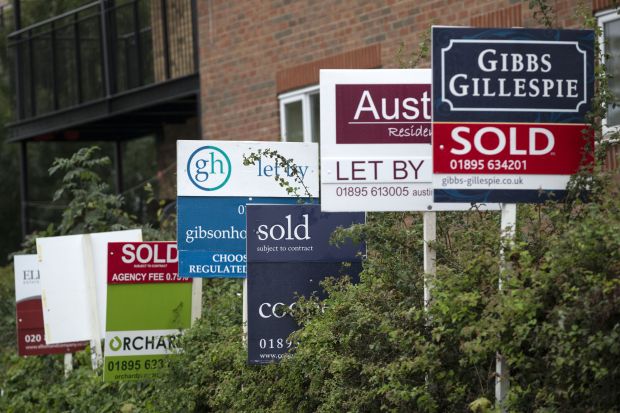Britain’s biggest estate agent expects UK house prices to fall 1 per cent in 2017 before recovering in 2018 because of economic weakness caused by uncertainty following the referendum decision on 23 June.
Countrywide says that the Brexit vote will have an impact on the economy generally, which will feed into household incomes and possibly delay decisions to move house.
People are also trying their luck more when it comes to negotiating the price of their new homes, as higher stamp duty payments and Brexit mean people feel able to ask for a lower price.
Although availability of finance is good, Fionnuala Earley, Countrywide’s chief economist, said we shouldn’t ‘push’ to buy a home while prices are slightly lower. ‘Buying a home is a long term affordability decision,’ she said.
Pensions
Pensioners could lose nearly a third of their retirement pot under government plans to save companies being crippled by growing pension costs, analysis for the Daily Telegraph has found.
The cuts could become possible under measures being considered by MPs in the Work and Pensions Committee, which would for the first time allow cash-strapped employers to reduce workers’ final salary-type pensions without first going through courts.
Data compiled for the newspaper by pension consultancy, Hymans Robertson, reveals the startling extent to which the various proposals could impact pensioners’ incomes.
BHS
The family home of Dominic Chappell, the former owner of BHS, was on the brink of being repossessed before cash from the department store chain was used to pay off the mortgage.
The Guardian has learned that financial company Amicus initiated legal proceedings against the Chappell family to repossess the property unless their debts were repaid. The debt was settled when the parent company of BHS paid out £1.5 million. The money came from BHS and was paid out as an interest-free loan. It has not been repaid.
The saga raises further questions about Chappell’s management of BHS and highlights the chaos behind the scenes as the chain headed for collapse.
Help-to-buy
The Daily Telegraph reports that the Government and banks could face legal action from thousands of savers over the Help-to-Buy ISA scandal, as experts said they may have broken consumer law by failing to make vital restrictions clear to customers.
Controversy surrounding the savings scheme for first-time buyers is mounting after the Daily Telegraph reported savers were unable to use their promised 25 per cent government bonus for deposits required when contracts are exchanged.
Legal experts and consumer campaigners said savers who had suffered financial loss as a result of wrongly being led to believe they could use the scheme for a deposit to buy their house had a good chance of winning if they took their case to court.
Bank branch closures
The Mail on Sunday reports that the retreat of banks from Britain’s high streets is in full flight. Branches across the country are being axed at a rate never witnessed before as the big banking organisations seek to ruthlessly cut costs and push more people online.
In many instances, the closures are leaving villages and towns without a bank, forcing both residents and retailers to travel further afield to do their banking.
The Mail on Sunday obtained details of the branches that two of the country’s biggest banking groups, HSBC and part state-owned Lloyds, have put on notice of closure by early December. The closure lists make for frightening reading.
Schools
More than 200 schools built in Scotland under private finance initiative (PFI) schemes are now at least partially owned by offshore investment funds.
Under PFI, the private sector builds and manages school buildings in return for a fee, typically over 25 to 30 years.
In one project in Edinburgh, 17 new schools were built, with the council paying £1.5 million a month. Analysis for the BBC found there had been 13 trades involving equity in the Edinburgh schools scheme since 2001.






Comments